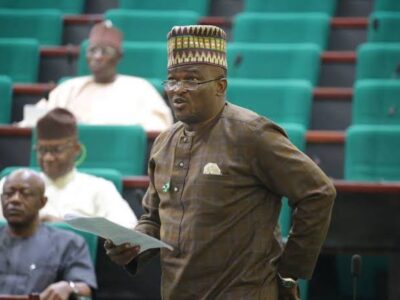
The Nigerian Senate has passed a landmark bill proposing a 300% increase in salaries, allowances, and fringe benefits for judicial office holders. This bill, read for the third time and passed yesterday, aims to enhance the remuneration of the judiciary in alignment with current economic realities.
The Senate’s approval followed the presentation of the Senate Committee on Judiciary, Human Rights, and Legal Matters’ report by Chairman Senator Mohammed Monguno (APC, Borno North). Monguno emphasized that the bill received unanimous support from stakeholders during its public hearing, highlighting its critical role in the justice sector reform initiatives of the current administration.
According to Monguno, the bill aligns with the Nigerian Constitution and Senate rules, addressing the long-overdue need for increased judicial pay amidst high inflation. He described the legislation as “apt and timely,” noting that it not only raises basic salaries but also accounts for the unique administrative structure and operational demands of the judiciary.
“The proposed legislation is innovative,” Monguno stated, “It ensures appropriate and commensurate remuneration to support judicial independence and integrity. Adequate compensation will allow judicial officers to focus on their professional development, improving their professionalism and decision-making skills without financial concerns.”
He further stressed that fair compensation is crucial for maintaining public trust in the judiciary’s impartiality and integrity. Adequate pay demonstrates society’s commitment to the essential role of judges in upholding justice.
Monguno also noted that the increased remuneration is essential for attracting and retaining highly qualified professionals with the necessary skills, knowledge, and integrity. The bill promises financial security for retired judicial officers, allowing them to enjoy a comfortable retirement after years of dedicated service.
The proposed increments are included in the 2024 Appropriation Act, ensuring the necessary budgetary provisions for this significant adjustment.
























Comments